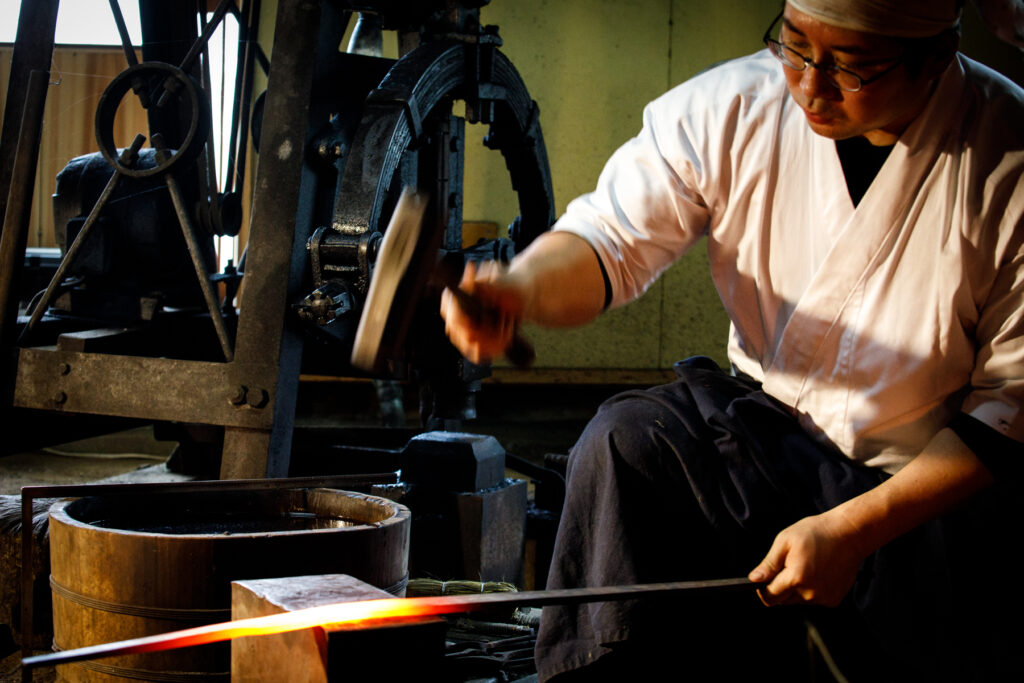Hozu-gawa River Boat Ride
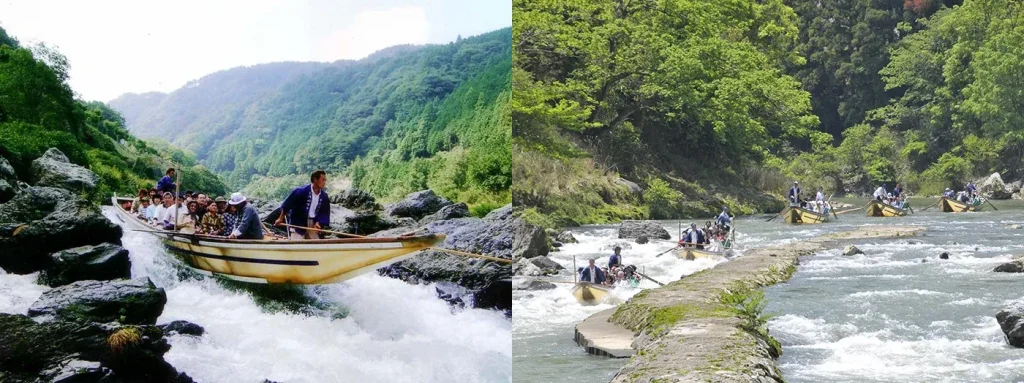
One of the most captivating ways to experience the scenic beauty of Kyoto is by taking a boat ride down the Hozu-gawa River. This 16-kilometer stretch of river was historically significant as a transportation route bringing lumber to Kyoto when it was the capital of Japan. Today, it offers visitors a thrilling two-hour boat ride through breathtaking natural landscapes. Skilled boatsmen expertly navigate the river, taking riders on an exciting ride through pools and rapids, where you’ll be surrounded by the rock formations and gorgeous seasonal scenery of the Hozukyo Gorge. This ride leaves visitors in the very popular Arashiyama area.
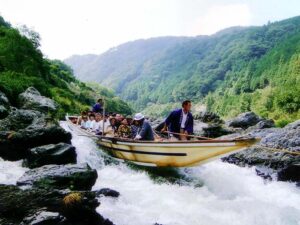
Hozu-gawa River Boat Ride
Kyoto’s premiere spot for scenic beauty, the Hozugawa River flows 16 kilometers between the mountains leading to Arashiyama. Once an essential waterway for transporting lumber, rice, and other goods t …
Bamboo Basket Weaving at Chikuyu-kan Hall

Arashiyama may be home to Kyoto’s most well-known bamboo groves, but did you know that there’s another bamboo grove that isn’t widely known to tourists in Nagaokakyo, just west of Kyoto City center? Bamboo is important to this area of Kyoto, which you can see in its beautiful bamboo park. To learn more about this heritage, and learn from the company that maintains this park, head to Kameoka City, northwest of Kyoto City: The Nagaoka Meichiku Kameoka Workshop, which hosts this event, has been producing traditional bamboo fences for 60 years. While you won’t learn how to make an entire fence, in this workshop participants can create their own delicately woven bamboo basket, and learn a bit about the versatility and beauty of bamboo.
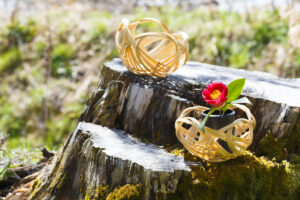
Bamboo Basket Weaving: Experience the skills of a certified Kyoto craftsman!
Take this chance to re-experience the wonder and high quality of bamboo in this workshop that has fashioned bamboo fences for 60 years. The work here is easy to perform, regardless of gender. You can …
Make a Traditional Bamboo Screen Lunch Mat

At Kyo Sudare Kawasaki’s workshop in Kameoka City, you can craft your own hand-woven bamboo lunch mat under the guidance of a skilled sudare craftsman. Sudare (bamboo screens) have been used in Japan since ancient times, and while the number of workshops still making these screens is dwindling, this workshop just outside of Kyoto City carries on the tradition with care. In this two and a half hour experience, you’ll choose from various types of bamboo and colorful threads to make two unique lunch mats. You can make a large-sized mat (40cm x 30cm)* and create a personalized piece to take home as a functional souvenir of your trip to Kyoto.
*Activity price varies based upon the size of the mat you make.
Zen Meditation at Shinpuku-ji Temple
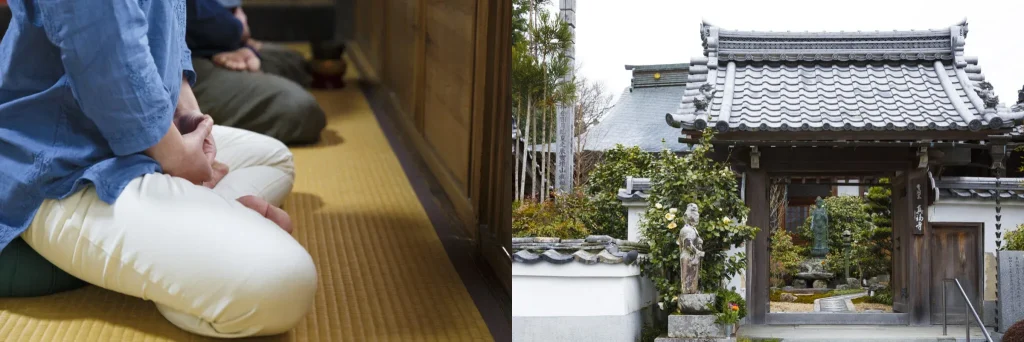
For those seeking a more tranquil experience, the zen meditation offered at Shinpuku-ji Temple is a must. Located at the end of a road winding through idyllic rice fields, this small zen temple offers a private and serene environment for meditation. Participants can converse with a Buddhist monk, stretch to prepare their bodies, and then engage in seated zen meditation. Whether this is your first time with meditation or not, this is a good chance to authentically connect with some of Japan’s ancient spiritual practices.
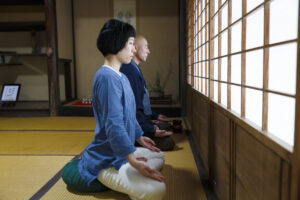
Zen Meditation
There is a small zen temple at the end of a road that stretches through the rice fields. In this entirely private environment, you can speak with a Buddhist monk, and after bringing your body into ba …
Kintsugi Class at Miyama Atelier

Kintsugi, the art of repairing pottery with lacquer and powdered gold or silver, is an ancient Japanese technique that transforms broken items into beautiful works of art. At urujyu’s Miyama Atelier, participants can learn this delicate craft using kiurushi, a minimally-processed type of lacquer sap. The one-day experience or short-term programs offer a peaceful and creative way to spend your time in a traditional Japanese house.

Kintsugi Class
Kintsugi is an ancient Japanese repair technique in which cracks or chips in pottery are repaired with lacquer and beautifully decorated with powdered gold or silver. At urujyu, we use only “kiurushi …
Raku-ware Pottery Experience at Shoraku Kiln
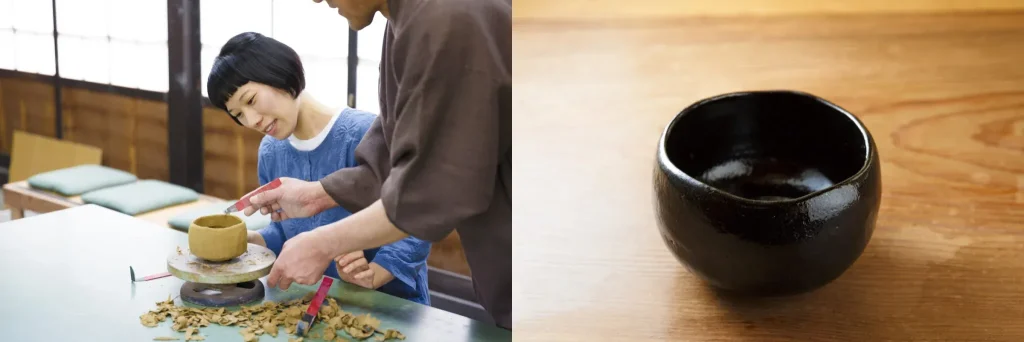
Raku-ware is the name for the type of Japanese pottery traditionally used in tea ceremony, including tea bowls (chawan), like the one pictured above. At Shoraku Kiln in Kameoka, Kyoto, you can get hands-on and create a raku-ware tea bowl yourself. Participants shape the clay by hand, dry it, and then cut it to the desired shape and weight under expert guidance, resulting in a unique, handmade piece of pottery that connects to a centuries-old tradition. This intimate experience is limited to one group per day.
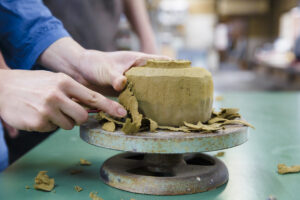
Raku-ware Pottery Experience
At Shoraku Kiln, pottery-throwing activities are carried out on a reservation-only system. Experience making raku-ware pottery tea bowls in the same way as the raku-ware craftsmen. After shaping the …
Masahiro Sword Smithing Experience

Step into the world of the samurai with the Masahiro Sword Smithing Experience. This activity offers a rare opportunity to learn about Japanese swords (katana) from a skilled swordsmith. Participants can use tamahagane, the same steel used to craft authentic katana, to forge a small, hilt-less blade known as a tousugata kogatana. This is an extraordinarily unique opportunity to learn from a master, stretching the steel and shaping a blade with your own hands. It’s an incredible way to learn more about the art and culture of Japanese sword making.
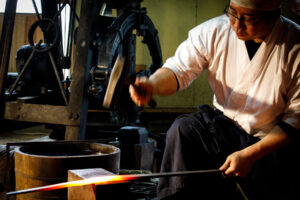
Masahiro Sword Smithing Experience
Learn about Japanese swords/katana from an active Japanese swordsmith, and use tamahagane, the same type of steel used to make Japanese swords, to make a hilt-less, small, sword-shaped blade (tousugat …
To see even more activities and destinations in Kyotos’ woodland region, see Idyllic Scenery and Traditional Crafts: 10 Destinations in Kyoto’s Mountainside for a town-by-town breakdown of the region unique places, traditional crafts, and how you can learn about them, hands on.
